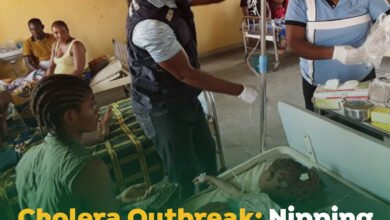SICKLE CELL: Why Increased Government Commitment is Crucial in Battle Against the Disease

Every July 9th, the world unites for Sickle Cell Day. This year, the theme, “Hope Through Progress: Advancing Sickle Cell Care Globally,” underscores the urgent need for improved care and a brighter future for millions living with this debilitating disease.
Disease with Devastating Impact
Experts describe sickle cell anemia as an inherited blood disorder caused by a single gene mutation. When both parents pass the defective gene, a child is born with sickle cell disease.
Carriers, inheriting just one copy of the gene, typically remain healthy. However, the characteristic crescent shape of red blood cells in sickle cell disease leads to blockages in blood vessels, causing excruciating pain, organ damage, and a shortened lifespan.
According to a 2021 study in Science Direct, the number of people living with sickle cell disease globally has risen dramatically. Nigeria stands as the epicenter, with an estimated 4-6 million sufferers, accounting for 25% of its population carrying the sickle cell gene.
This translates to countless families struggling with the physical and emotional toll of the disease.
Renewed Hope Through Advocacy
This year, renewed hope emerged with the sickle cell advocacy group urging the National Assembly to resurrect the abandoned Sickle Cell Bill of 2021. The bill, sponsored by Senator Sam Egwu, seeks to establish a framework for preventing, controlling, and managing sickle cell disease.
Experts agree the government at all levels must do more to prioritize enacting the sickle cell bill to benefit people living with the disease and all Nigerians.
The Bill’s Provisions and Challenges
One of the bill’s contentious provisions calls for mandatory pre-marital genotype testing. While aimed at reducing the number of children born with the disease, such a measure raises ethical and logistical concerns. Would enforcing such a mandate be realistic or infringe on individual rights?
Experts like Dr. Christopher Neblem emphasizes the importance of broader solutions. “Genotype testing is vital,” he says, “but so is ensuring access to quality healthcare for carriers and patients.”
The bill also empowers the Ministry of Health to oversee disease management, accredit healthcare facilities, and manage donations for research and treatment.
However, concerns remain about the effectiveness of implementation and the allocation of resources
Working together
The coalition of sickle cell NGOs aims to avoid working in isolation. Toyin Adesola, Founding Executive Director of Sickle Cell Advocacy and Management Initiative and Chairperson of the Coalition of Sickle Cell NGOs, commented, “We believe in working together on the issue of sickle cell; we believe that when we come together as a group, people will understand us better, and I hope that the Red Umbrella Walk held in different parts of Lagos and Nigeria will create awareness in our population and create curiosity when they see different people doing the same thing across different parts of the country.”
She urged NASS to revisit the bill by granting it speedy passage for the president’s approval. “In terms of management,” a medical doctor, Emeka Nwune, emphasized, “Advocacy is the first step, adding that genotype testing is equally crucial to fighting the disease.” We need the government’s support. We require policies that will ensure soldiers receive quality healthcare. We need specialized health maintenance organization plans, and it will take government policies to achieve that,” the medical practitioner concluded.
There is a consensus that with increased government commitment, alongside public awareness, advocacy efforts, and investment in research, there is real hope for a future where Sickle Cell disease no longer cuts lives short.





